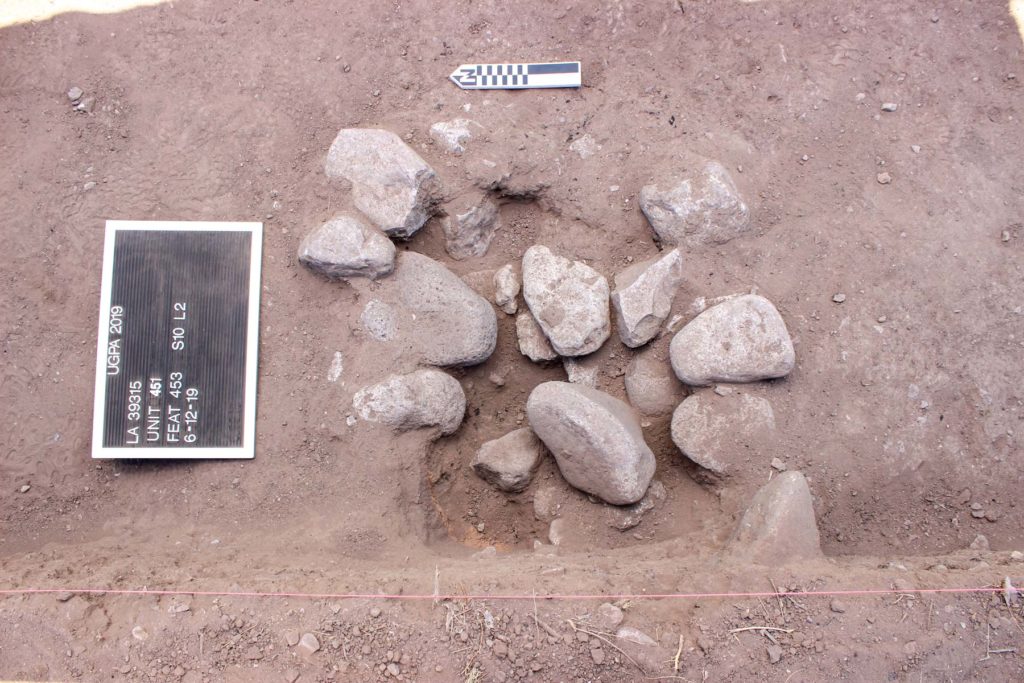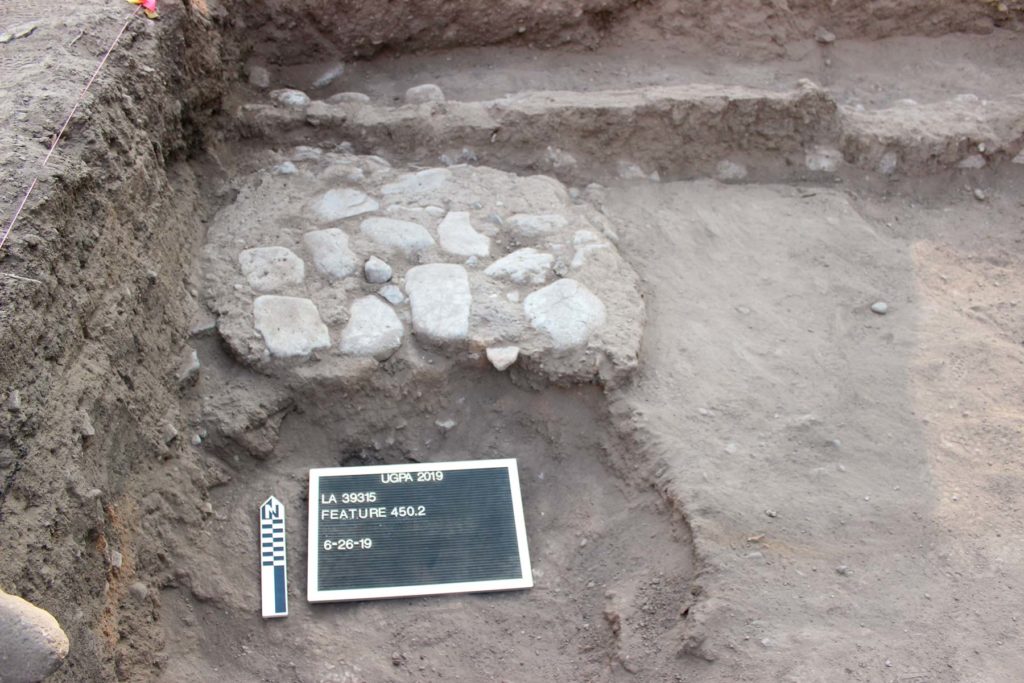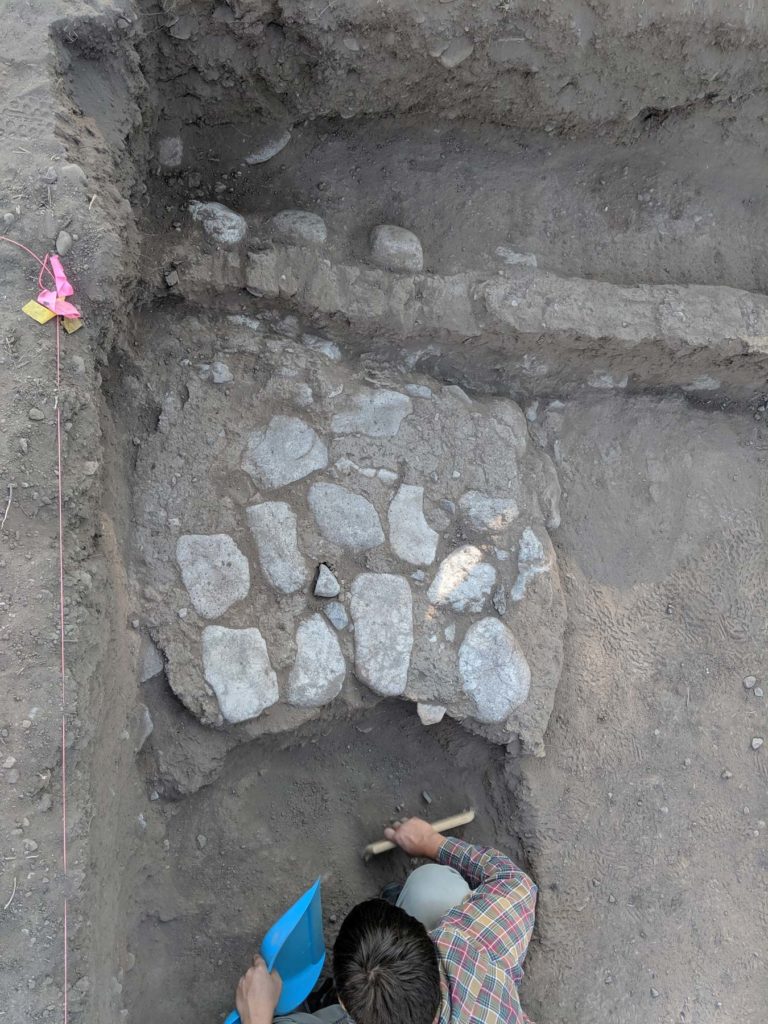- Home
- >
- Preservation Archaeology Blog
- >
- Google Won’t Save You Here
Kelsey Hanson, University of Arizona
(July 21, 2020)—I hate looking dumb. I always have and I always will. And I will readily admit that I try really hard to not look dumb. How do I do that? I have two answers.
One answer is the one everyone probably expects: I do my homework. I’ve been in school for a long time, and I’ve got some letters after my name to show for it (and I’m working on a few more).
But there’s another, less admirable and far more embarrassing answer: I Google stuff on my phone! A lot. And admit it—you do, too.
All joking aside, let’s face it: We have the world at our fingertips. We are rarely forced to sit in that uncomfortable space of not knowing for very long. But there’s a great deal of research telling us that our reliance on mobile technology is not doing us as many favors as we may think. A wealth of research shows that the instant gratification of our smartphones negatively impacts our abilities to think critically, remember, pay attention, and regulate emotion.
At the field school, with limited access to cell service and Wi-Fi, the shock of disconnecting from our digital lives is hard to ignore. But I think one of the most important things field school provides is the opportunity to embrace that uncomfortable curiosity.
Field school slows down the pace of learning. Field school makes you work for your answers.
Reacquaint yourself with your senses
Without being able to run to the conveniences of Google, you may find that you need to find your answers elsewhere. You’ll need to reacquaint yourself with your senses to get the information you need to answer your questions.
Learn how to ask “dumb” questions
When you’re unable to put together an answer with your own knowledge and with what you can gather on your own, it’s time to ask. And you’ll need to learn how to ask “dumb” questions. So, you’re going to have to get comfortable with asking those around you for answers.
But it’s important to realize that your “dumb” questions are never as dumb as you think they are. There’s always a reason why you don’t know. Either something was unclear, you don’t have enough information, or perhaps it’s something that no one knows the answer to! The only way to figure that out is to ask.
Embrace the unknown and enjoy the thrills of collaborative discovery
To that end, knowledge is not as objective as you might think. There aren’t as many objectively “true” statements in this world as you might expect. And knowledge is something that each of us gains differentially based on our own unique experiences. Once you learn to shed the hesitancy you may have, you’ll find the joys of discovering something together.
Last year, excavations in the room I was supervising revealed a pretty complicated situation. While everyone excavating in the other units kept finding projectile points, beads, intact hearths, and exotic nonlocal ceramics, we kept turning up glass and metal. Bottle glass. Window glass. And enough metal to make us want to double check that our tetanus shots were up-to-date.

Between cursing a little to ourselves amid the taunts from the other units, we talked a lot. What was going on here?
Now, in the hot afternoon sun our interpretations probably started to get a little too creative (“clearly, this scattered historic trash came to be here because Astrid, an intrepid woman, absolutely must have burned her cheating husband’s belongings in a final fit of rage”).
But ultimately, we were able to put together what had happened. After lots of thinking and talking and careful scraping, we determined that, during the late 1800s and early 1900s, someone had dug into our ancient room and used it as a dump for historic refuse, which was later burned. We identified the edges of this intrusive pit and were able to merrily excavate the rest of our room. And, thankfully, these turn-of-the-century custodians left us with an intact slab-lined hearth, beautiful floors, and… something else.

Once we thought we had it all figured out, we encountered a big circular platform of adobe and cobbles. In this case, no matter how much thinking and talking and careful scraping we did, we couldn’t figure it out.
This is when you need to Phone-a-Friend and ask some dumb questions. Luckily, Jeff Clark showed up in the nick of time. Thanks to Jeff’s keen eye and regional expertise, he quickly identified this mess of baked adobe, river cobbles, and pottery as a granary pedestal.
Granaries were tall storage features made of basketry and covered in adobe that were built on top of adobe pedestals. The basketry had long since disintegrated, but the pedestal remained intact for us to find.


But you won’t find any references to granary pedestals in the Upper Gila. They’re far more common in the Phoenix Basin and Tonto Basin, where Jeff has conducted a great deal of research.
Another example of why it pays to look dumb every once in a while.
Ultimately, I think one of the most crucial skills that you can learn in field school is to relearn how to learn. Learn to pay attention to collecting information, learn to ask questions, and learn how to rely on one another’s strengths and weaknesses to figure stuff out in the hot summer sun.
After months of quarantining, it’s more difficult than ever to escape technology. (A recent coffee spill on my laptop was a painful reminder of how technology-dependent I am!) I’m craving the separation from the digital world more than ever, and I am looking forward to next summer when we collectively lose cell service for a little while.
Our time together at the Preservation Archaeology Field School goes by faster than you think. Embrace the new skills, knowledge, and friendships you’ll make. I promise it’s much easier to do without a screen holding you back. And don’t worry, you’ll get 45 minutes at dinner to share some excruciatingly slow internet to plug back into the world (kind of).
2 thoughts on “Google Won’t Save You Here”
Comments are closed.
You write beautifully.
Nice post! Smart phones are still no replacement for smart people (e.g., Jeff Clark).